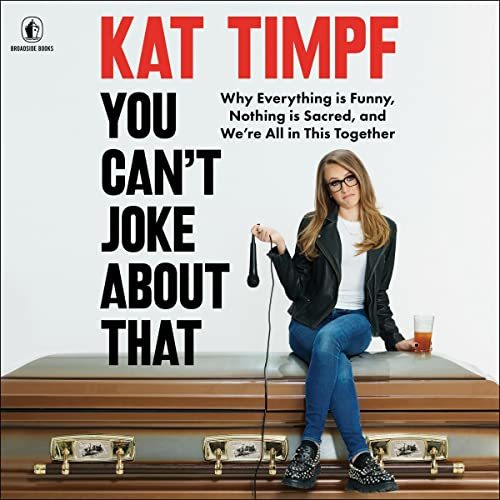Six months after Kat Timpf lost both her mother and grandmother, she went to Coney Island with her dad and boyfriend. The boyfriend who had stood by her side through all the pain. It probably seemed like a nice day, until Dad went for another round of drinks and the boyfriend broke up with her. The poor guy stepped away for a minute, and when he came back his little girl was a wreck. I guess he took it in stride, because rather than slugging the guy he just let the trip continue as planned.
Kat even sat with her now ex on the Ferris wheel and the train ride home.
Years later Kat had found a new love and had a wedding planned. Things didn’t quite work out as anticipated, though. On her wedding day, instead of her home church, she was in the hospital, horrible pain, and suffering unbelievable indignities. The intervening years had been no picnic. A beloved pet died right before she went in to do an important segment for Fox News, various boyfriends and wannabe boyfriends mistreated her, and she worked herself to the bone (have you seen her? That wouldn’t take long) to build her career.
Did she get bitter? Did she turn hyper-religious?
No, and kinda? Through it all she kept making jokes a finding humor in her life’s worst moments. As she says in the final chapter, humor became her religion. In You Can’t Joke About That: Why Everything is Funny, Why Nothing is Sacred, and We’re All in This Together, Kat doesn’t just tell her life story. She uses it to back up her thesis. Not satisfied with anecdotal evidence, she digs deep into the academic studies that support her arguments. Along the way, she holds up a mirror to cancel culture, revealing its flaws and hypocrisy.
If you were expecting a collection of humorous essays, you will be sadly disappointed.
But you'll still smile at her irreverence.
No one has ever been harmed by hearing a bad joke. But many people have lost their careers, if not their lives, for making one. It’s a reality we don’t often consider, even as we tiptoe around saying the wrong thing. Comedians have to take risks. No one can really know if a bit is going to land until they test it in front of an audience. And if we take away their right to make missteps, the world will be a much gloomier place.
So ever the Libertarian, Kat argues for no limits.
Without realizing it, her entire book is about a search for grace. Kat wishes she still believed in God, not as she knew Him growing up, but as merciful. She knows how it feels to mess up, to feel not just the embarrassment but also pain of unwittingly saying something horrible in an attempt at a joke. So she’s willing to extend grace, even to people on the other side of the political spectrum.
I sincerely hope she finds true faith.
God created us in His image, and throughout the Bible He promises to fill our hearts with joy, and reminds us that there is a time for laughter. How could he give us something that He doesn’t have, or encourage us to do something He can’t do? Jesus, God incarnate, told a joke or two. I can’t agree with Kat that nothing is sacred. But maybe the list of sacred things isn’t as long we’ve made it.

























